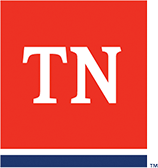The Fiscal Year 2025 Special Opportunities application is closed at this time. Please check back for availability.
Non-matching Special Opportunities: Arts Engage grants of up to $5,000 are available to arts organizations and local governments operating as arts organizations to support organizational development of effective leadership, sound management practices, diverse financial resources, successful partnerships, and technology improvements in the arts sector. Arts Engage grants are also available to nonprofit organizations and local governments to engage the creative sector to address needs or opportunities in communities through the arts. Applicants are asked to identify appropriate, realistic strategies for developing organizational skills or addressing challenges and opportunities, as well as demonstrate readiness to undertake capacity building activities. Proposed projects should enhance the overall artistic, educational, and/or cultural value of the organization to their communities and help maintain a strong infrastructure for the arts throughout Tennessee.
Special Opportunities grants are only available to organizations or entities of government that do not have an FY25 Annual Grant from the Tennessee Arts Commission at the time of application.
Funds from this grant opportunity cannot be used for any project or activity currently funded by other Tennessee Arts Commission grants.
Arts organizations or local governments operating as arts organizations may apply for activities that include (but are not exclusive to) the following:
- Short-term consultations to assist with organizational opportunities and challenges, like contracting with a consultant to address administrative and managerial concerns such as short or long-term planning, audience development, marketing and promotion, board/staff development, accessibility planning/training, financial management, technical skills, and external environment challenges.
- Improvements to technology such as equipment purchases, website development or redesign or computer software purchases (software purchases must be accompanied by related training). Support of expenses related to ongoing website updates and maintenance is not allowed.
Arts organizations and nonprofit organizations and local governments that are considered “non-arts organizations” may also apply for activities that engage the creative sector in ways that:
- Address unique and/or immediate community needs or opportunities through arts activities that are open to the public
- Strengthen communities through arts projects that enhance community and organizational sustainability, resiliency, and rebuilding
- Create a sense of belonging and place, advance quality of life efforts, or promote community dialogue through the arts
- Enlist and employ artists and creative workers in innovative, responsive initiatives that benefit Tennesseans and their communities
Applications are encouraged that address one or more of the following objectives:
- Invest in arts and cultural assets to enhance everyday life for all Tennesseans.
- Foster innovation and excellence.
- Accelerate transformation of rural areas through the nonprofit arts and creative sector.
- Strengthen community vibrancy through cross-sector and public/private partnerships with the arts.
- Facilitate community arts learning for all Tennesseans.
The TN Arts Commission reserves the right to deny or withhold, in whole or in part, public funds for projects, programs, or other activities deemed inappropriate by the Commission, or if the proposed activities purpose is outside of the scope or spirit of this grant program.
General Information and to determine eligibility to apply, Ann Brown, Associate Director of Grants, 615-532-5939
Access to the Arts for Underserved Communities, Kim Johnson, Director of Arts Access, 615-532-9797
Community Arts, Shannon Ford, Director of Community Arts Development, 615-532-9796
Arts Education, Chris Sweatt, Director of Arts Education, 615-253-8914
Folk and Traditional Arts, Bradley Hanson, Director of Folklife, 615-532-9795
Literary Arts, Lee Baird, Director of Literary Arts, 615-532-0493
Performing Arts, Jared Morrison, Director of Performing Arts, 615-532-9801
Visual, Craft, Media and Design Arts, Krishna Adams, Director of Visual Arts, Craft, Media, and Design, 615-532-9798
The Tennessee Arts Commission encourages applications from any eligible organization from across the state. Those located in Fiscal Year 2025 distressed, at-risk, and rural counties are especially encouraged to apply.
An organization is eligible to apply for funding support if the organization meets one of the following qualifications:
- The applicant is a nonprofit organization legally chartered in Tennessee and has its headquarters and home season, or activities equivalent to a home season for non-producing organizations, in Tennessee and in possession of a determination letter from the Internal Revenue Service declaring the organization exempt from federal income tax under Section 501(c)(3) of the Internal Revenue Code.
- The organization is an entity of government.
- Arts organizations that receive revenue directly from a “New Specialty Earmarked Plate” under T.C.A 55-4-301 (a)(1) are ineligible for Commission grant funding.
Proposed applications must involve one or more Commission recognized art forms, including: visual arts, craft, media, design, music, theater, dance, folk and ethnic, or literary arts. Please see Legal Requirements for further details.
Debarment and Suspension. Grantees are required to sign contracts certifying to the best of their knowledge and belief, that it, its current and future principals, its current and future subcontractors and their principals are not presently debarred, suspended, proposed for debarment, declared ineligible, or voluntarily excluded from covered transactions by any federal or state department or agency.
Any grantee shall promptly notify the State in writing of any significant changes in the organization’s structure, leadership or financial circumstances that could affect services provided under the grant contract resulting from this application.
A completed FY25 Title VI training and certification must be completed before any grant funds will be dispersed. Title VI training information can be found at this link.
All Commission sponsored programs, services and facilities are fully accessible to all Tennessee artists and citizens. Organizations are urged to consider contracting with diverse artists, artists living with disabilities, and/or artists representing Tennessee’s diverse artistic and cultural heritage. No person on the basis of race, color, national origin, disability, age, religion or sex shall be excluded from participation in, or be denied benefits of, or otherwise be subject to discrimination of services, programs and employment provided by the Commission and its contracting agencies. If an individual believes they have been subjected to discrimination, they should contact the Commission’s Director of Arts Access, Kim Johnson (615) 532-9797.
The Tennessee Arts Commission reserves the right to deny any application, if the proposed activity is outside of the scope or spirit of the agency’s mission, purpose, or this grant program.
The application should be well planned and presented.
The appropriate documentation is attached to the application.
The narrative clearly explains the goals of the project and how the applicant will monitor progress.
The narrative clearly describes how the project aligns with one or more of the objectives highlighted in the guidelines.
The funding request clearly outlines what the applicant intends to do and how, when, where, and for whom.
The narrative includes how this project will engage and benefit the organization’s local artistic community and/or the community at large.
Funding is based on the narrative case for the grant, the accuracy of the application, reasonableness of the budget, and the availability of funds, which are distributed on a first-come, first-served basis.
This grant does not require a cash match.
Applications are reviewed in-house by Commission members and staff. Funding notification will take place via email.
Grant funds will be paid as reimbursements after the event. Grantees must submit all required close-out paperwork no later than 30 days after the ending date of the activity. Failure to do so may jeopardize future funding.
Register to use the Online Grants System. You are strongly advised to register well in advance to the application deadline. Anyone registering close to the deadline date can expect delays in the processing of their grant application.
Once you’ve been emailed a username and password, log in to the Online Grants System to complete your profile and begin an application.
Use the “Organizations” tab on the left-hand menu to ensure that the profile is complete and accurate. This information is as important as the application itself. Incomplete or erroneous data will impact your chances for funding. To edit the profile, click the “Edit” button at the top of the Organization screen.
Use the “People” link to ensure your profile is complete and accurate. This information will also be used in the review of the application. To open the record for editing, click the edit button at the top of the screen.
When your “Organization” and “People” profiles are complete and accurate, select the “Apply for Grants” tab again and click the “Apply for a ROLLING Grant” link listed on the page. Then select Grant Category “Special Opportunities” and Sub Category “Arts Engage.”
Complete all of the application fields.
Create and upload required attachments.
Submit by at least thirty (30) days prior to the beginning date of the project activity.
NOTE: The forms in this portal do not auto-save. Always click the “Save” button before navigating away from the page.
Beware that clicking the back navigation button on your web browser will exit you from the system and you will lose your work.
Association or Connection to Multiple Organizations: If you are associated with more than one organization, the organization that you were originally associated with will prepopulate in the organization name field on any newly opened application. To change to another associated organization, simply delete the prepopulated name and type in the correct organization.
What to Submit
Applicants must complete and successfully submit all sections, including required uploaded documents, of the FY2025 Rolling Grant Application electronically at minimum of 30 days in advance of the project start date.
Required Documents
A copy of the organization’s current by-laws must be on file in the Documents section of the Organization profile in the online grants account. All applicants must provide a valid IRS Employer Identification Number that is issued in the name of the applicant organization. Note that organizations may be asked to provide determination letter from the IRS if the Tennessee Arts Commission cannot verify nonprofit status within the “select charity check” process within the online grants system.
Unique Entity ID (UEI): All applicants are required to have a Unique Entity ID. Information and application instructions can be found here.
Nonprofit organization applicants must also provide at the time of their application:
- A copy of the applicant’s Corporation Annual Report from the TN Secretary of State’s office. Use this link to request a “Printer Friendly Version” and upload that PDF to the Organization Card.
- List of Board of Directors. Only nonprofit organizations with 501(c)3 status will be prompted to upload this document. The board list (at the time of application) must include the following:
- Full Name
- Email address
- Number of years on the board
- Length of term(s)
- NOTE: Other biographical information about individual board members should NOT be included on this list. Legal requirements state that Commission funds granted to an organization may not be used as a payment of any kind, for any purpose, to members of an organization’s board.
Failure to provide all documentation will result in the application being disqualified. For further eligibility information, please refer to the Commission’s Legal Requirements.

